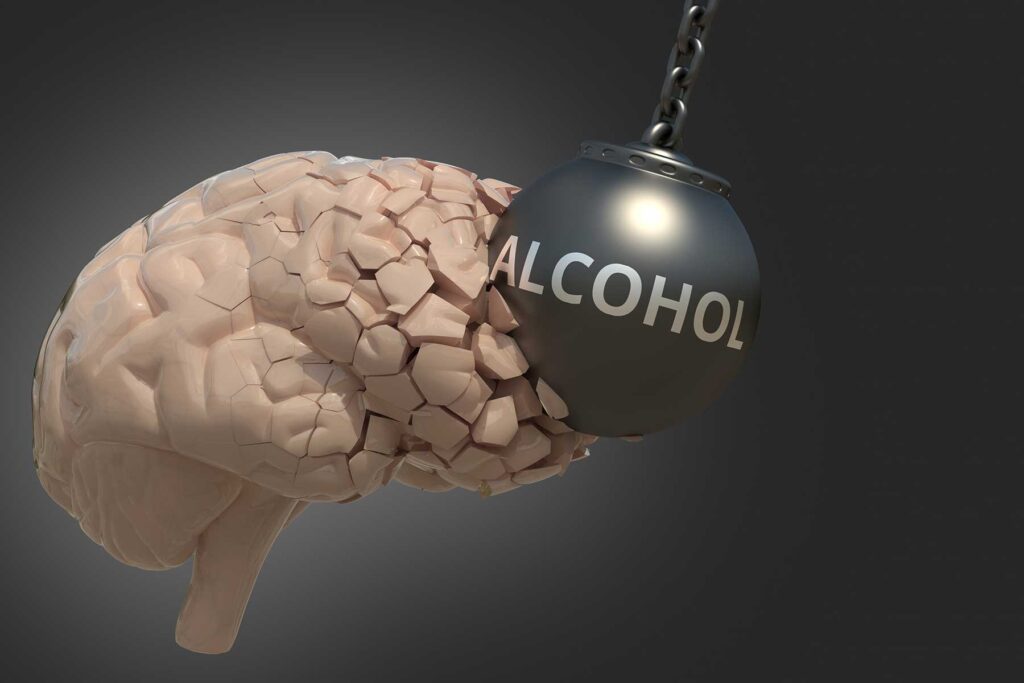You may have seen an alcoholic gait before. It’s an unsteady, staggering walk—but it doesn’t necessarily point to an alcoholic losing the ability to walk. The cause of the alcoholic gait is cerebellar ataxia, a type of brain damage.
What do you need to know about alcoholism and ataxia? Anybody can develop ataxia-related problems affecting everyday speech, hand-eye coordination, or the ability to perform delicate hand motions. Ataxia is a loss of coordination, making it impossible to control various body movements. However, long-term alcoholics frequently develop cerebellar ataxia. Some alcoholics develop permanent forms of this condition. Others partially recover after an extended period of sobriety. If you or someone you love wants to overcome alcoholism and possibly lose their alcoholic gait, call 844.875.5609 to speak with someone from Promises Behavioral Health. Ask about our alcohol detox centers, alcohol addiction treatment programs, and residential alcohol rehab options throughout the United States.
What Is Ataxia?
People struggling with ataxia have nerve damage affecting some of the central nervous system (CNS). The nervous system acts as the control center for the body. It manages both involuntary functions—such as breathing or your heart rhythm—and voluntary functions like walking. There are dozens of different ataxias, including:
- Spinocerebellar ataxia – Affecting multiple parts of the CNS and can range from mild to severe
- Ataxia telangiectasia – A rare genetic disorder that affects movement and immunity
- Friedreich’s ataxia – An inherited disease affecting the nervous system and other body systems
- Acquired ataxias – Derived from some other medical condition or injury, such as a stroke or tumor
Some ataxias develop for non-hereditary reasons and not due to other medical conditions, like alcoholic cerebellar ataxia. Long-term alcoholics develop this type due to nerve damage resulting from excessive drinking.
What Is Cerebellar Ataxia?
Cerebellar ataxia is a symptom, not a distinct disorder. The cerebellum plays an essential role in human health. It coordinates the integration of sensory information, muscle movement, and body coordination. When the cerebellum is damaged, many symptoms may show up.
Signs of Cerebellar Ataxia
The signs of alcohol cerebellar ataxia include the following:
- Reduced ability to accurately gauge the passing of time
- A general state of muscular looseness or floppiness
- Loss of coordination and effective use of the muscles and joints
- A reduced ability to control movement in the hands, feet, and eyes
- A complete loss of the ability to make rapidly shifting body movements
If the disease progresses enough, these symptoms resemble the stereotypical alcoholic gait.
Causes of Cerebellar Ataxia
Alcoholism is not the only potential cause of cerebellar ataxia. Causes include:
- Chronic alcoholism
- Viral infections
- Multiple sclerosis
- Use of certain medications
- Pesticide exposure
- Strokes
If you’ve experienced traumatic head injuries that produce bleeding in the brain, you may also be at risk of developing cerebellar ataxia.
Can an Alcoholic Recover from Cerebellar Ataxia?
Several medical studies have examined whether cerebellar ataxia improves when alcoholics stop drinking. Some of these studies show that abstinent alcoholics may experience minor improvements in their ataxia-related symptoms within 10 weeks of getting sober. However, after this 10-week period ends, there is typically no additional improvement for at least a year. Other studies note that improvements only occur when the person recovering from alcoholism’s eyes are open. In the absence of visual input, the gains diminish significantly.
Female alcoholics commonly sustain more ataxia-related brain damage than male alcoholics. Despite this, the prospects for recovery from ataxia during long-term abstinence are roughly equal for both genders. Even with the benefit of long-term abstinence, some recovering alcoholics experience limited improvements in their ataxia-related symptoms. While some abstinent alcoholics fear losing the ability to walk, few, if any, will ever reach this point. However, many people in addiction recovery will keep their alcoholic gait.
Find Alcoholism and Ataxia Treatment with Promises Behavioral Health
Contact Promises today at 844.875.5609 to learn more about our alcohol addiction treatment programs, residential alcohol rehab options, and detox centers throughout the United States. Our recovery specialists provide clinically-based treatment for individuals living with alcoholism and ataxia.

